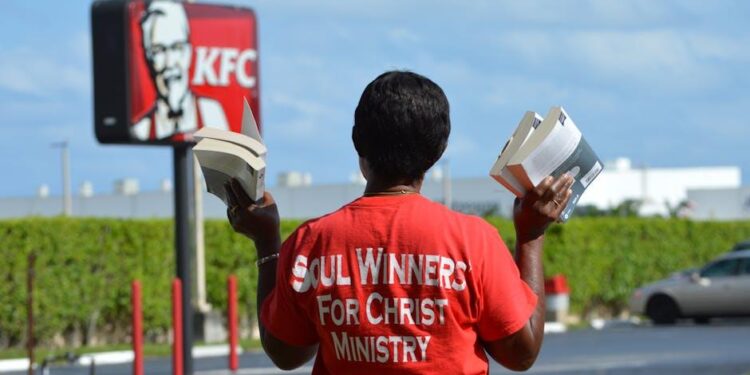Table of Contents
1. Introduction: Unraveling Michael Grant’s Departure from 9-1-1
Michael Grant, portrayed by actor Rockmond Dunbar, was a foundational character on the popular Fox (later ABC) series 9-1-1.
Since the show’s debut in 2018, Michael served as the ex-husband of lead character Athena Grant (Angela Bassett) and a central figure in the family dynamic.1
His evolution from Athena’s husband to her ex-husband, a supportive co-parent, and a friend to her new partner, Bobby Nash, cemented his significance within the show’s core family unit.3
His departure in Season 5 was presented as an emotional, narrative-driven farewell, but it was, in fact, an abrupt exit stemming from a significant real-world dispute.4
This report will delve into both the on-screen plotline that facilitated his exit and, more critically, the behind-the-scenes conflict involving COVID-19 vaccine mandates and subsequent legal action, providing a comprehensive understanding of why Michael Grant left
9-1-1.
The sharp contrast between the carefully crafted, emotionally resonant on-screen departure and the contentious, forced real-world exit illustrates a common practice in television production.
Showrunners frequently devise plausible narrative solutions to accommodate unforeseen off-screen issues, thereby maintaining narrative integrity for viewers while managing real-world talent relations.
This approach ensures that the storyline continues seamlessly, even when external factors necessitate an actor’s sudden departure.
2. Michael Grant’s Journey on 9-1-1: A Character Profile
Michael Grant was introduced in the pilot episode as Athena Grant’s husband, later revealing his identity as gay and evolving into her ex-husband and a dedicated co-parent to their children, Harry and May.3
This character arc was notable, showcasing his journey of self-discovery and his unwavering commitment to his family.
He played a crucial role within the family unit, maintaining a strong friendship with Athena and even warmly welcoming her new partner, Bobby Nash, into their lives.
Michael was instrumental in reassuring Athena about taking her relationship with Bobby public and inviting Bobby into the Grant family for dinner, demonstrating his maturity and unwavering support.3
As an architect, Michael’s storylines often revolved around his family life, his struggles to find work later in Season 4 due to the pandemic, and his deep connection to his children.
He worked diligently to build a relationship with Harry, especially after Harry’s kidnapping in Season 5, Episode 2.3
His character was an important part of the
9-1-1 family from the very first episode, providing a stable, loving, and supportive presence despite personal challenges.3
Michael’s established role as a supportive, evolving character who embraced significant personal changes made his abrupt, real-world departure particularly impactful on the audience.
His many endearing qualities meant his sudden absence would be keenly felt, necessitating a compelling on-screen explanation to provide emotional closure for viewers.
The deeper a character’s integration into the primary family dynamic, the greater the effort required to explain their absence, and the more likely viewers are to perceive a discrepancy between the narrative and the actual reasons for departure.
3. The On-Screen Farewell: Michael’s Move to Haiti
Michael Grant’s final episode, titled “Defend in Place” (Season 5, Episode 8), aired in November 2021.2
The narrative arc leading to his departure centered on his burgeoning relationship with Dr. David Hale, a neurosurgeon whom he initially met during a hospital power outage in Season 3.3
In his farewell episode, Michael learned that David had been asked to join a hurricane relief team in Haiti for several months to provide medical care.3
Michael, recognizing his desire to spend the rest of his life with David, decided to propose, enlisting the help of Athena and their children.3
Following a dramatic hospital explosion that trapped David, Michael successfully proposed to him outside the hospital, and David tearfully accepted.4
Michael then announced his decision to join David in Haiti indefinitely, stating, “I can’t save lives, but I can help rebuild one.” This poignant line, accompanied by a series of flashbacks of his time on the show, underscored his commitment to his new life and resonated deeply with viewers.4
The emotional impact of this exit was evident in fan reactions, with many viewers expressing their sadness and tweeting about being “in tears” and “ugly crying” over the episode.4
The creation of such a fulfilling, emotional, and open-ended narrative exit for Michael, involving a move to Haiti for love and humanitarian purpose, despite the underlying, abrupt real-world circumstances, showcases the writers’ skill.
This approach provided closure for a beloved character without explicitly revealing the contentious off-screen reasons, thereby maintaining the show’s integrity and respect for its audience.
It demonstrates how creative teams navigate unforeseen production challenges by prioritizing the viewer’s experience and providing a believable, character-driven resolution.
4. Behind the Scenes: The Real Reason for Rockmond Dunbar’s Exit
Despite the emotional on-screen farewell, Rockmond Dunbar’s departure was not a creative decision but a direct consequence of the COVID-19 vaccine mandate implemented by Disney TV Studios’ 20th Television, the production company behind 9-1-1.1
This mandate, a common protocol across many industries during the pandemic, required all actors on Disney productions to be vaccinated to ensure safe working environments.2
Dunbar reportedly requested both a medical exemption and a religious exemption from the vaccine requirement.1
Crucially, his requests were denied by his employer, leading directly to his character, Michael Grant, being “written off the show”.1
Dunbar himself confirmed this in a statement to Deadline, unequivocally stating, “I applied for religious and medical accommodations pursuant to the law and unfortunately was denied by my employer”.5
The direct cause-and-effect relationship between the Disney vaccine mandate, Rockmond Dunbar’s denied exemption requests, and his subsequent forced departure from
9-1-1 is a central factual point.
This is not open to interpretation; it is explicitly stated across multiple, consistent sources, establishing the foundational reason behind Michael Grant’s exit.
5. The Vaccine Mandate and Exemption Controversy
Rockmond Dunbar based his religious exemption request on his membership in the Church of Universal Wisdom, whose members are “obligated to avoid medical intervention that introduces disease into the body”.1
However, the studio, Disney/20th Television, countered this claim by pointing out that Dunbar had reportedly taken many actions inconsistent with these stated beliefs, including undergoing past medical procedures.1
Dunbar’s defense against this inconsistency was that he had “spoken with God, who ‘permitted [him] to act differently,'” a claim that U.S. District Judge Dolly Gee later found skeptical during legal proceedings.1
Furthermore, a significant point of contention was that when Dunbar initially requested an exemption, he reportedly did not cite a religious basis for his request, which also contributed to the judge’s skepticism regarding the sincerity of his claims.3
Dunbar’s lawsuit later alleged that Disney and Fox lawyers explicitly called his religion “fake” and his beliefs “insincere” during discussions about the mandate, indicating the depth of the dispute over the validity of his religious objection.1
The detailed arguments surrounding Dunbar’s religious exemption reveal the legal complexities involved in assessing the “sincerely held belief” standard in employment law.
The studio’s counter-arguments, such as his past medical procedures, and the judge’s skepticism, stemming from the initial lack of a religious claim and his “spoke with God” defense, indicate a deep legal challenge to the validity and sincerity of his stated religious objection.
This is crucial for understanding why the exemption was denied, despite his stated religious affiliation.
This case, and others like it during the pandemic, highlight the ongoing tension between employer mandates, especially for public-facing roles in industries like entertainment, and individual claims for religious or medical exemptions.
It underscores the challenges courts face in defining and verifying “sincerely held beliefs” in the context of workplace requirements, impacting future employment disputes.
6. The Legal Battle: Rockmond Dunbar vs. Disney/20th Television
In February 2022, Rockmond Dunbar filed a lawsuit in federal court against the makers of 9-1-1 (20th Television and parent company Disney), seeking more than $1 million in residual and contractual payments.1
The lawsuit was comprehensive, alleging religious discrimination, racial discrimination, retaliation, and breach of contract.2
Dunbar specifically claimed that other non-Black employees’ requests for accommodations were granted while his was not, forming the basis of his racial discrimination claim.2
However, the legal battle has seen significant developments: in July 2022, a Los Angeles judge dismissed Dunbar’s case of racial misconduct as “baseless,” indicating a lack of sufficient evidence or legal merit for that particular claim.1
Despite this setback, as of March 2024, the religious discrimination claim is proceeding to trial, with a judge ruling that 20th Television must face this aspect of the lawsuit.8
This indicates that while some claims were dismissed, the core religious discrimination argument holds enough legal merit to be heard in court, suggesting a continued legal challenge for the studio.
The lawsuit’s evolution, with the racial discrimination claim being dismissed but the religious discrimination claim proceeding to trial, points to a strategic legal battle where not all of Dunbar’s initial claims held up, but one significant claim did.
This suggests the specific legal merits of the religious discrimination argument, despite initial skepticism from the judge regarding sincerity, and highlights the nuanced nature of employment law disputes.
In response to the lawsuit, 20th Television released a public statement to TV Line, asserting their commitment to safe working environments through a mandatory vaccination confirmation process.
They stated that “each request for exemption is given a thorough review” and that they “grant accommodations consistent with our legal obligations,” explicitly adding that “there are no differences in our process or decision-making based on an employee’s race”.2
This statement directly counters Dunbar’s allegations and outlines the studio’s defense.
The studio’s public statement is a carefully crafted corporate defense, designed to manage public perception and establish their legal position.
By highlighting “safe working environments,” “thorough review,” and “no differences…
based on race,” they are attempting to control the narrative and demonstrate compliance with legal obligations, directly countering Dunbar’s allegations.
This is a common strategy in high-profile employment disputes to protect reputation and legal standing.
Timeline of Key Events: Rockmond Dunbar’s Departure and Lawsuit
| Date | Event |
| November 2021 | Michael Grant’s final episode (“Defend in Place”) airs on 9-1-1. 2 |
This chronological timeline provides a clear, at-a-glance overview of the key milestones, making it easy to understand the progression of the dispute from his departure to the current legal status.
It distills scattered date information from multiple sources into a coherent narrative, enhancing clarity and comprehension.
7. Implications and Future: Will Michael Grant Ever Return?
Given the ongoing legal dispute and the contentious nature of Rockmond Dunbar’s exit, it is highly unlikely that the character of Michael Grant will ever return to 9-1-1.6
The relationship between the actor and the studio appears severely strained.
Fan discussions on platforms like Reddit explicitly state, “Nope.
Rockmond Dunbar left on really bad terms, and is still in the process of suing the studio/production over the COVID regulations,” concluding that there is “no way I see him returning” as long as legal issues continue.9
Industry analysis further suggests that Dunbar “burning bridges with Disney” makes a return extremely difficult, even if the character is technically alive and could logically reappear in the narrative.6
The implications of suing a major studio like Disney can have long-lasting effects on an actor’s career opportunities, potentially leading to a form of informal blacklisting or reduced opportunities within the broader entertainment industry.
This extends beyond just
9-1-1 and represents a significant consequence for any actor involved in such a high-profile legal battle with a powerful entity.
Furthermore, some creative assessments indicate that Michael’s character, not being a first responder, sometimes felt “one note” in his interactions, often expressing fear for Athena and Bobby’s dangerous jobs.6
This limited narrative scope potentially made his absence less creatively impactful for the show’s ongoing narrative, despite his personal significance to the main characters.
This perspective might reduce the show’s inclination to facilitate his return, even if legal issues were resolved, as the creative team might prioritize new storylines that do not require his reintegration.
Despite the high-profile legal battle, Dunbar has appeared in a “scattered number of films and TV shows” since his departure, including “Aftershock” and “The Game,” suggesting his career has continued, albeit potentially impacted by the high-profile lawsuit and the strained relationship with a major studio.6
8. Conclusion: A Complex Departure and Lasting Impact
Michael Grant’s exit from 9-1-1 serves as a prime example of the complex interplay between fictional storytelling and real-world production challenges within the entertainment industry.
While the show provided a heartfelt narrative farewell for a beloved character, allowing for emotional closure for viewers, the underlying cause was a contentious dispute over COVID-19 vaccine mandates and denied religious exemptions.1
The ongoing lawsuit between Rockmond Dunbar and Disney/20th Television highlights significant legal questions regarding employment discrimination, the sincerity of religious beliefs, and the power dynamics within the entertainment industry.1
The fact that the religious discrimination claim is proceeding to trial underscores the continued legal complexities and the unresolved nature of the dispute.
Dunbar’s case, alongside others like Letitia Wright’s, represents a significant example of the legal and logistical challenges faced by the entertainment industry during the pandemic in balancing public health mandates with individual rights and contractual obligations.
It illuminates a period of unprecedented tension that forced studios to adapt and actors to make difficult choices, potentially setting precedents for future employment disputes in the industry.
This incident underscores the broader impact of pandemic-era protocols on Hollywood productions and the lasting consequences for both actors and the shows they inhabit, making Michael Grant’s return to 9-1-1 a highly improbable scenario as long as the legal and relational bridges remain unbuilt.6
Works cited
- Rockmond Dunbar – Wikipedia, accessed August 12, 2025, https://en.wikipedia.org/wiki/Rockmond_Dunbar
- ‘9-1-1’ Alum Rockmond Dunbar Sues Producers Over Vaccine-Related Exit – YouTube, accessed August 12, 2025, https://www.youtube.com/watch?v=NPK8yu-iw80
- Why Michael Grant Left 9-1-1, Explained – CBR, accessed August 12, 2025, https://www.cbr.com/michael-grant-left-911-explained/
- 9-1-1 season 5’s latest episode airs major character exit – Digital Spy, accessed August 12, 2025, https://www.digitalspy.com/tv/ustv/a38262469/911-season-5-michael-grant-exit-rockmond-dunbar/
- 9-1-1 star Rockmond Dunbar exits show over vaccination protocols – HELLO! magazine, accessed August 12, 2025, https://www.hellomagazine.com/film/20211116126395/9-1-1-fans-devastated-major-character-exit/
- Why Rockmond Dunbar’s Michael Grant Left 9-1-1 – SlashFilm, accessed August 12, 2025, https://www.slashfilm.com/1897954/why-rockmond-dunbar-michael-grant-left-911-explained/
- www.tvinsider.com, accessed August 12, 2025, https://www.tvinsider.com/1022104/rockmond-dunbar-leaving-911-season-5-michael-david-proposal/#:~:text=And%20it%20turns%20out%20that,Television%20productions%2C%20according%20to%20Deadline.
- 9-1-1 stars who left and why: from Rockmond Dunbar to Connie Britton and more | HELLO!, accessed August 12, 2025, https://www.hellomagazine.com/film/554322/9-1-1-stars-who-left-and-why-rockmond-dunbar-connie-britton-and-more/
- Is there a chance : r/911FOX – Reddit, accessed August 12, 2025, https://www.reddit.com/r/911FOX/comments/1i338v1/is_there_a_chance/






